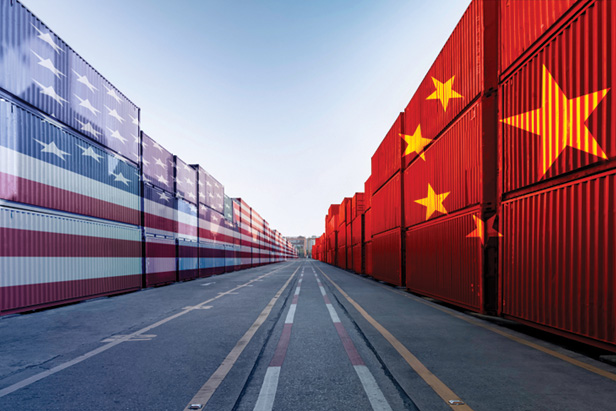June 04, 2024
Tariff Exemptions To End as Supply Chain Challenges Rear, Levy Increases Loom
It’s all part of an increasingly challenging sourcing situation with which promo companies and other importers are contending.
With supply chain costs soaring, importers in the promotional products industry and beyond have another potential sourcing cost escalator to deal with: the imminent expiration of exclusions from trade tariffs on hundreds of China-made products.

The United States Trade Representative announced last week that it’s going to allow more than 230 product-specific exclusions from the so-called Section 301 tariffs on items imported from China to expire by June 14.
Technically, the levies ended May 31, but the USTR provided a two-week extension, after which the goods become subject to the tariffs. Such levies make the importing of affected items more expensive for companies sourcing the products, which can drive up prices for consumers and business-to-business buyers, including those in promo.
Impacted Products
A full list of the products upon which the 301 tariffs will soon apply is presented in Annex D of this document from the USTR.
Items with potential relevance for promo that will no longer be subject to tariff exclusions by mid-June include certain types of messenger bags and duffel bags; backpacks with hydration systems; plates, bowls or cups of molded or pressed bamboo pulp; particular types of woven dyed fabrics; grills of specific measurements composed of steel wire and designed as a cooking surface of a barbecue grill; and some blankets, bathrobes and rugs.
#Promotionalproducts executives noted the just-announced tariff increases could affect the cost of some products, sourcing practices and shipping prices, but emphasized the industry would adapt.https://t.co/6kF6iRwcfe
— Chris Ruvo (@ChrisR_ASI) May 14, 2024
The expiring tariff exclusions on some products come as the Biden administration is planning to increase import duties on other goods, including steel and aluminum.
USTR said that on 102 of the expiring product-specific exclusions, it received no public comment on why the levy exemptions should continue. “For the remaining exclusions,” USTR said, “public comments do not demonstrate that further extending the exclusion would aid efforts to shift sourcing out of China in the near term or do not demonstrate that products covered by the exclusion are unavailable outside of China.”
Still, not all the previous tariff exclusions are expiring this month; the USTR extended the exemptions on some products – detailed in Annex C – through May 31, 2025.
Items covered by the year-long extension with potential relevance for promo include backpacks with an outer surface of textile materials of man-made fibers and of particular dimensions; certain silk and long-pile knit fabrics; parts of chairs of unfinished plywood, including bodies, legs and arms; protective covers of cotton for pillows; and particular baby crib liners and baby sleep sacks.
“The U.S. Trade Representative has found that extending these exclusions will support efforts to shift sourcing out of China, or provide additional time where, despite efforts to source products from alternative sources, availability of the product outside of China remains limited,” a USTR document read.
Other Tariffs Increasing; Supply Chain Woes
Word on the expiring tariff exclusions came a few weeks after President Joe Biden declared his administration will be increasing levies on $18 billion worth of imported Chinese products and keeping in place other levies that his predecessor Donald Trump implemented on more than $300 billion in goods brought into the United States from China.
The increased duties will apply to steel and aluminum, electric vehicles, battery components, natural graphite, permanent magnets, solar cells, legacy semiconductors and medical products that include syringes, needles and personal protective equipment like respirators, face masks and rubber medical/surgical gloves. Other older Trump-era levies remain on the 12-figures worth of goods/products.
Supply chain challenges eerily reminiscent of the #COVID-era crisis are back, though not as severe as during the pandemic. How will that impact #promoproducts pricing and inventory? What's causing the problems? Some insights:https://t.co/nrIoxpTI1J
— Chris Ruvo (@ChrisR_ASI) May 30, 2024
The tariff issues are rearing as promo and other industries heavily reliant on imported products and materials deal with renewed supply chain snags that include soaring freight rates and container shortages.
Suppliers told ASI Media last week that they’re adapting but also experiencing importing delays. Major inventory shortfalls as a result of the delays aren’t expected, as of this writing. Still, suppliers have warned of impacts to custom orders and the potential for prices to increase on a broad range of promo products if the sourcing expenses keep rising for a period of time.
Since the supply chain article published last week, other suppliers have been in contact with ASI Media to shed additional light on the situation. Britney Godsey, chief revenue officer at Gold Bond (asi/57653), said the Tennessee-based supplier is experiencing importing delays of up to four weeks.
“We have several containers delayed due to transloading,” Godsey explained. “Initially, they were loaded onto one vessel but had to be transferred to another.”
Importing/supply chain costs have risen significantly, said Godsey, adding: “I don’t foresee any relief soon. The shipping lines collaborate to impose a general rate increase on importers. In other words, they ensure their profitability regardless of global circumstances.”
The vast majority of products sold in the North American promotional products industry are manufactured overseas. China remains promo’s main sourcing destination, though there have been efforts in recent years to diversify some production to other countries. U.S. importers brought $427.2 billion worth of goods/materials stateside from China in 2023.
